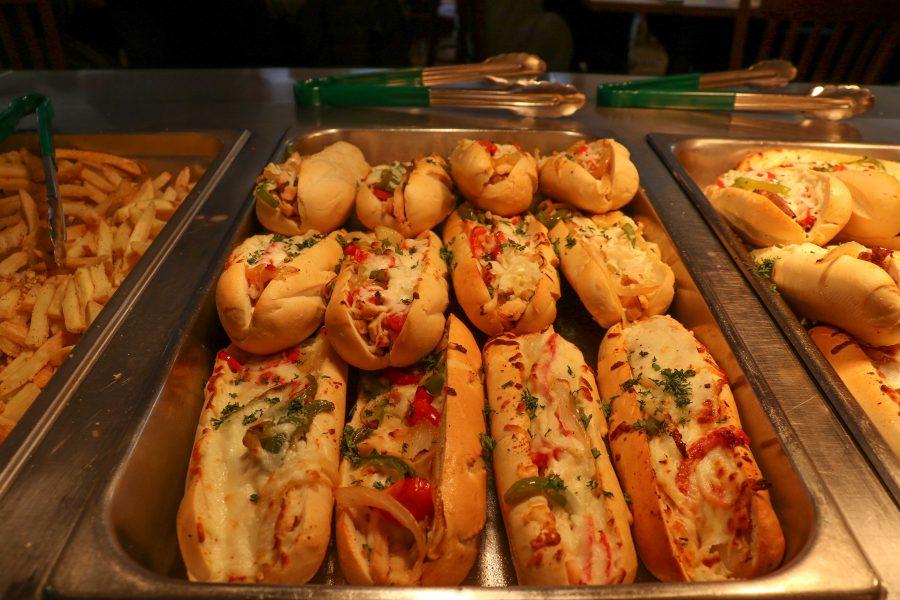Combating food waste difficult for Greek houses
Alpha Delta Pi’s Sorority House serves food on Wednesday, Feb. 14th.
Feb 16, 2017
When students in Greek houses pass over the sloppy joes or green beans at lunch, this untouched food often ends up in the trash. Chefs and other caterers are forced to dispose of the leftovers due to strict regulations contributing to food waste.
“It’s the liability that comes with the food product, especially leftovers.” said Arnaldo Posadas, chef for the Alpha Delta Pi sorority. “We have a policy of 24 hours. After 24 hours, we will have to throw it away.”
This often comes with a large amount of leftovers generated each day. However, the food is not allowed to be donated, even if it is unused or untouched.
Food that was never served on the buffet line can be frozen since there is no risk of contamination. The sorority has a two-week rotating menu, so the ingredients can be kept in the freezer for two weeks until the next time they can be used.
Alpha Delta Pi uses a food service company exclusively for fraternities and sororities called College Chefs.
Get The Daily Illini in your inbox!
They’re not alone. Many greek houses on campus chose to sign a contract with a caterer or a campus chef. One popular one is Hendrick House.
Hendrick House currently contracts with 19 fraternities and sororities on campus. Adam Malone, Greek accounts manager for Hendrick house, said most contracts are with sororities.
Greek houses can choose to work with Hendrick House in two different ways. Malone said larger houses with kitchens usually choose to sign a contract with a chef. The chef then communicates with the house and produces a personalized menu according to respective specificities.
As for the smaller houses, Malone said Hendrick House offers drop-off services. Roughly 14 fraternities do not have adequate kitchen space or equipment, so they use Hendrick House’s drop-off service.
However, such delivery service requires a fixed menu because the food is cooked in large portions and divided up upon various houses for delivery.
Malone said leftovers are often placed into the student’s’ individual refrigerators for later.
Hendrick House is also combating food waste with its rooftop garden, which takes excess food and uses it as compost to fertilize the soil. Malone said it would be ideal for greek houses to incorporate the rooftop garden system on their own property, but that might not be a viable option.
“We have to be careful about it though, because it’s gotta be monitored closely to make sure drunken idiots aren’t doing something bad to it,” Malone said.
The company also participates in a cooking oil recycling system program and buys locally grown produce to increase sustainability, Malone said. They also recently terminated the use of trays.






